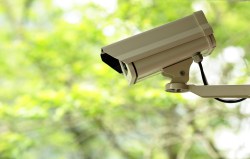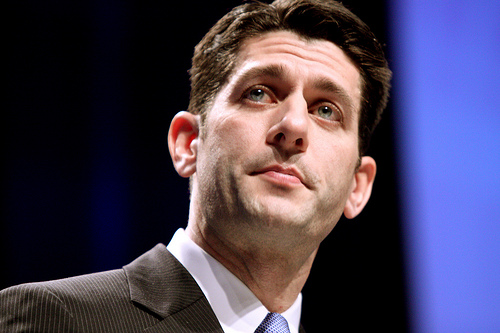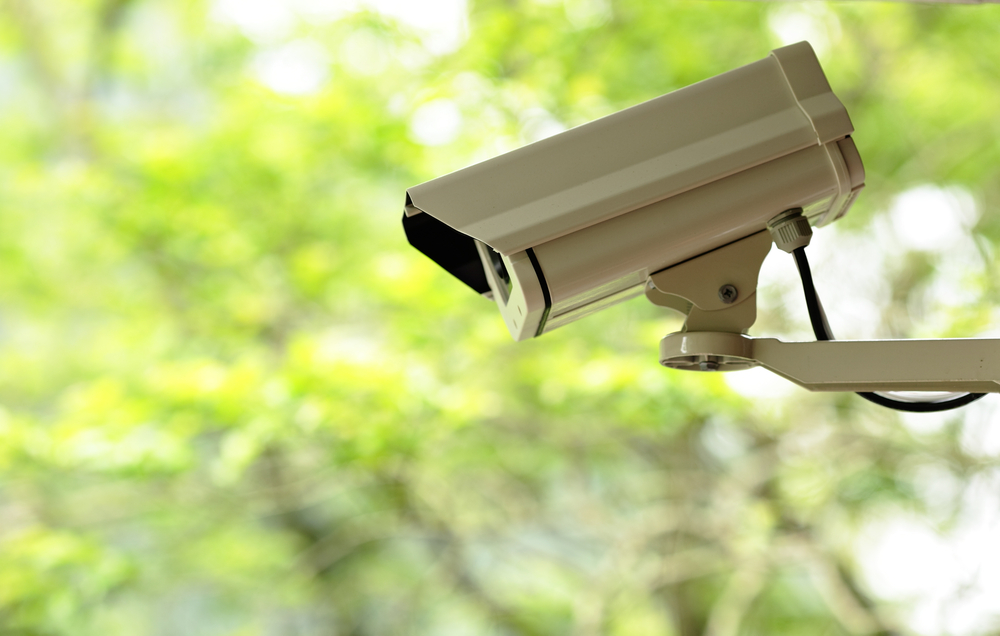
Photo by Shutterstock.
In the future, don’t expect any privacy. Every move, every purchase, even every thought — as personality profiling becomes more sophisticated — will be observed, logged, and analyzed. Big Brother will certainly be watching us.
We might expect our shopping and showering behaviors to be tracked as part of our individual carbon budgets. As you drive around a city, your combined congestion and pollution charge could vary depending on which route you take, on the time of day, and on how much you add to local air pollution. Globally, important conservation sites might be guarded, not by fences or rangers, but by remote sensors and cameras, monitored by teams of volunteers on the other side of the planet.
On current trends, this surveillance society seems bound to happen. In some ways, it is already with us. The U.K. already has more CCTV cameras per capita than any European country — an estimated 4 million in total — and the government recently announced plans for radically increased internet surveillance in the Queen’s Speech.
The cost of monitoring devices is tumbling, while the amount of data generated is exploding. Many of us carry location-aware devices around with us, leaving a digital trail of our movements. And nobody seems to care too much about the implications. While there was a fierce argument in the U.K. about the introduction of identity cards, most people seem happy to hand data about their daily lives to Google and Facebook, to transport authorities through travel cards like London’s Oyster, or to retailers through loyalty schemes.
Given that more people want to catalogue the minutiae of their personal lives online — that they actively want to be watched — we may eventually see the disappearance of privacy as a concept …
What does this mean for sustainability? Will this monitoring capacity be used to improve stewardship of natural resources? Or to prompt more responsible lifestyle choices? Or will it result in a more passive population, for whom daily decisions are made by algorithms based on past personal preferences and current resource efficiency?
I think that more monitoring and data about ecosystems and biodiversity will largely be a good thing. Who wouldn’t want clearer information of what’s happening in our oceans, with every ship and ferry carrying a sampling device? Who would disagree with better tracing, verification and policing of commercial logging or fishing? Who would argue against using remote sensing for improved disaster prevention and response? Remember, the global climate change frameworks will require robust systems of verification for carbon markets to work.
Yet surveillance will also, inevitably, be directed at individuals — particularly since much of it is done under justification of the fight against terrorism. Government and business will get much better at correlating a lot of data from various sources in order to profile people in much greater detail. Given that it is, on the whole, our individual choices and behaviors that lead to environmental damage, there is a logical argument for using such data to encourage different choices.
Governments will certainly make use of surveillance — to maintain security and raise taxes, as well as to implement environmental regulation. Businesses will use it to guarantee their supply chains or know their customers better. And civil society, too, will draw on data to hold others to account.
Twenty-five years ago, in the U.S., the Toxics Release Inventory showed that disclosing information about chemical pollution could spur communities to campaign and pressure for improvements. Twenty-five years hence, citizens across the world could be using data to compare their environmental footprints, to interrogate company supply chains or to monitor compliance with global environmental agreements.
The data will certainly be there. The big question is who will do the watching and who will control the information?



